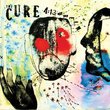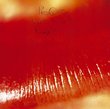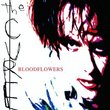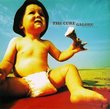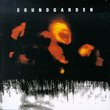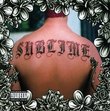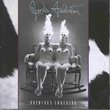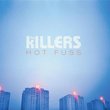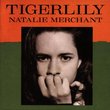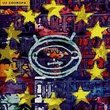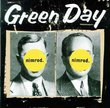| All Artists: Cure Title: Wild Mood Swings Members Wishing: 1 Total Copies: 0 Label: Elektra / Wea Original Release Date: 5/7/1996 Release Date: 5/7/1996 Genres: Alternative Rock, Pop, Rock Styles: Hardcore & Punk, Goth & Industrial, New Wave & Post-Punk Number of Discs: 1 SwapaCD Credits: 1 UPC: 075596174428 |
Search - Cure :: Wild Mood Swings
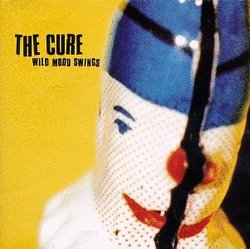 | Cure Wild Mood Swings Genres: Alternative Rock, Pop, Rock
Japanese edition of their first studio album in four years features the B-side 'It Used To Be Me' as a bonus track, plus 'The 13th', 'Mint Car', 'Want', 'Club America', 'This Is A Lie', 'Strange Attraction', 'Jupiter Crash... more » |
Larger Image |
CD DetailsSynopsis
Album Description Japanese edition of their first studio album in four years features the B-side 'It Used To Be Me' as a bonus track, plus 'The 13th', 'Mint Car', 'Want', 'Club America', 'This Is A Lie', 'Strange Attraction', 'Jupiter Crash', 'Round & Round & Round', 'Gone!', 'Numb', 'Return', 'Trap', 'Treasure' and 'Bare'. Similar CDs
Similarly Requested CDs
|
CD ReviewsAdd b-sides and remove songs: you have an album J. Galie | southern hemisphere | 11/01/2009 (4 out of 5 stars) "The wild mood swings era had some interesting songs except that they never made it on the album, and also, the singles from the album were poorly chosen in my view. Bsides now available on the Join the DOts compilation, such as the beautiful Ocean, Home, Waiting and the happy The Pink Dream should have definitely been on the album, at the same time, singles such as The 13th, strange attraction, and gone should have been relegated to bside material. The first single should have been mint car, the following ones should have been This is a lie, Jupiter Crash, and Club America. So, if you add the above mentioned 4 bsides and remove songs such as the annoying The 13th, Strange Attraction, Gone, Round & round, Return, Numb and Trap, you're left with an 11 song excellent album showing a pleasant evolution from what the cure did on Wish." Hugely under-rated, one of the top three Cure albums. Angry Mofo | 01/18/2010 (5 out of 5 stars) "Many Cure fans dislike Wild Mood Swings. Not me, though: I like it more than Wish. For one thing, it's much more energetic, with 14 songs that last an hour, whereas Wish had 13 songs lasting 66 minutes. Although Wish has many good songs, somehow they can get to sound monotonous if you listen to the whole album straight through. The songs on Wild Mood Swings, however, move along much faster, mostly avoiding this problem.
More importantly, Wild Mood Swings really has the light touch. The first song "Want" is a dark, driving anthem with a loud, droning lead, which is common in Cure albums (Wish started with one, too, and then let's not forget "Disintegration" and "Burn"). But rarely does this technique sound as effortless and graceful as here. The lead is basically pounding out two notes, but the arrangement soars (possibly thanks to Alan Moulder -- the first and last time The Cure worked with him). Halfway through the song, a beautiful string melody intertwines with the main lead, and it sounds just as vigorous as the distorted guitar in "Open." "Want" is the only anthem on the album. Much of Wild Mood Swings indulges the lounge-act side of The Cure. This is exactly why many Cure fans hate it, but I can't get enough. This was always part of The Cure. Robert Smith always had a bit of the lounge lizard in him, the dandy who likes to visit exotic places and stay in luxurious hotels, where he has numerous affairs with sophisticated demimondaines. You can trace this all the way back to Japanese Whispers, "The Caterpillar" and "Close To Me." So when he finally explores this side of himself on Wild Mood Swings, the results are amazing. This album has the best pop section of The Cure's entire discography. The songs are playful and fun, with the light touch I mentioned earlier. For example, "Mint Car" basically repeats "Friday I'm In Love," but it greatly improves on the formula, sounding less laboured and more energetic and delirious. It even has a brief but cool guitar solo. And "Mint Car" is actually the least creative of the lot. Other songs contain some dazzlingly inventive music. My favourite is "Gone," which is based on an angular bass line. The rhythm suggests some sort of jazz or Caribbean music, but the production gives the bass a deep, cavernous sound, a hint of darkness. It is a really interesting sound; if "Gone" wasn't successful as a single, it's only because no one was ready for it. Meanwhile, "The 13th" is a drunken mariachi song with woozy, cheerful horns, and "Strange Attraction" glitters with an impossibly clean, gorgeous keyboard line. Another great thing about Wild Mood Swings is the writing. Starting with Bloodflowers, Robert Smith's lyrics became extremely formulaic. Wild Mood Swings, however, recalls the good old days when he was quite a strong poet. Don't believe me? Just listen to "Strange Attraction," yet another Cure song about a failed romance, but with an abundance of quirky detail: "The year grew old, incessantly she wrote to me / She'd started smoking poetry! / I laughed in recognition of a favourite phrase / She'd pulled me in...I answered her, a Christmas card in sepia arranging when and where the two of us should meet / Her opening so well-prepared, a nervous smile, I couldn't take my eyes from her / She whispered, 'Can I use some of your lipstick?'" Even reading it is enjoyable, but when you listen to the way he makes these lines fit perfectly into the bouncy rhythm, you can see just how much of a kick he got out of writing this. Smith's writing has this sort of detail throughout most of the album, even the slow, sad, somewhat less thrilling numbers. "Jupiter Crash" is another moody breakup song that finds time to observe the collision of Comet SL9 with Jupiter: "Was that it, was that the Jupiter show? Kinda wasn't quite what I'd hoped for, you know?" This, of course, is used to illustrate Smith's disappointment regarding another failed love, but hey, better this than just wailing about loneliness. The album's only real weakness is "Club America," because the music consists of the same overbearing flood of wah-wah as "Cut" from Wish. This sound was later abused even more on Bloodflowers ("Watching Me Fall," "39") and the self-titled album ("The Promise"). The lyrics are actually not bad, but all the squealing feedback drowns them out, and the song is quite long (five minutes, third-longest on the album). This sound really doesn't fit in here. If Smith wanted to write a flamboyant song about clubs, he should have tried to incorporate an actual club sound, something like their heavily underrated 1998 non-album single "Wrong Number." The Cure also had some fine B-sides around this time that could have replaced this song, as well. But that's it -- the rest is splendid. You can occasionally see some traces of lazy writing creep in ("This Is A Lie"), or songs that repeat ideas from Wish ("Treasure" and "To Wish Impossible Things"). The lack of Boris Williams on drums is also unfortunate. But there's always something interesting going on, like elegant strings that sound either delicate ("This Is A Lie") or strong ("Numb"), or when all else fails, Smith's peerless talent for beautiful, languid melancholy ("Treasure," "Bare"). Wild Mood Swings was doomed at the charts -- it was not angry enough for 90s alt-rock, not sarcastic or rowdy enough for Britpop, and not gloomy enough for Cure fans -- but it's the last time Smith ever really pushed himself. This is definitely the album he wanted; it finds him indulging himself and exploring odd and interesting ideas, and those ideas inspired him enough to make the last truly great Cure album." |

 Track Listings (14) - Disc #1
Track Listings (14) - Disc #1